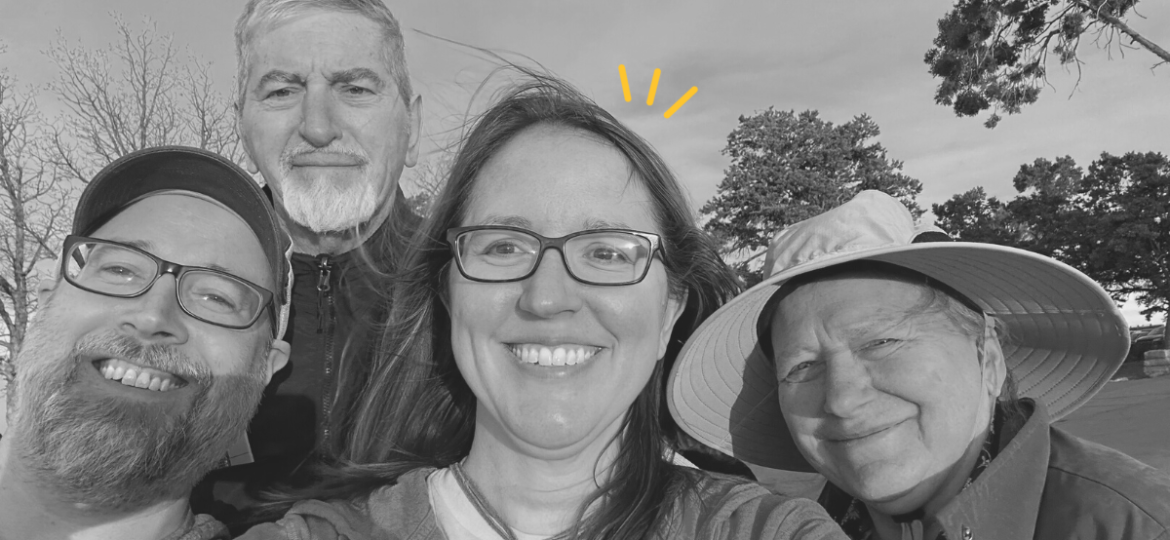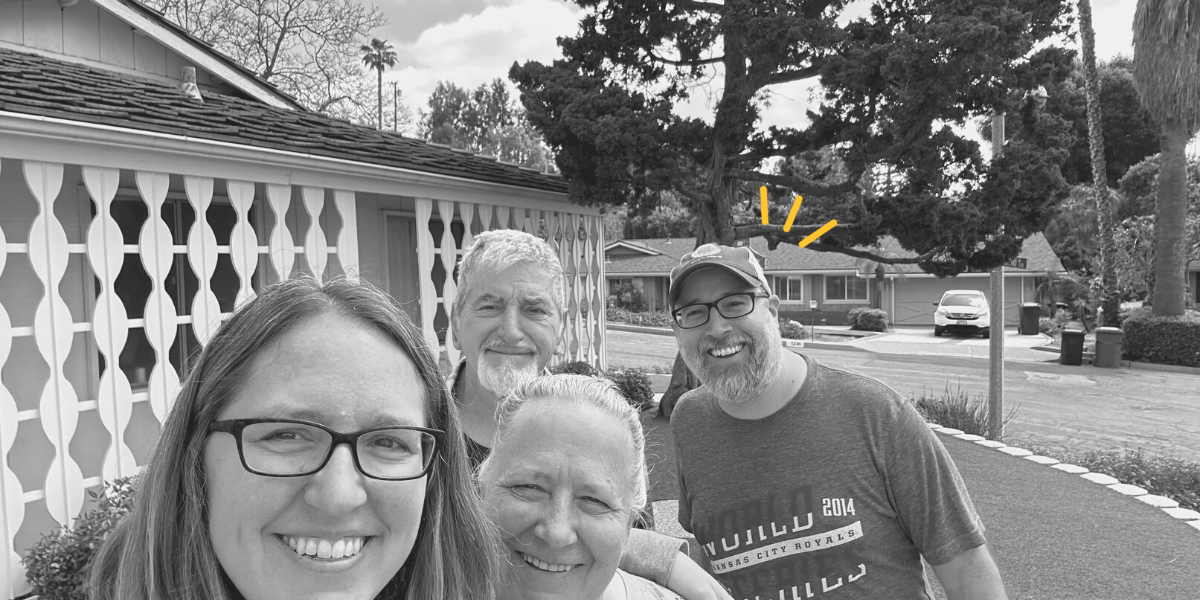
The question has never been “should I be allowed to take time off if I’m the leader?” The answer there is and always has been a resounding “yes.” We all face stressors, and I’ve written extensively about how stress can impact the brain and the body. Because leaders and business owners simply have more responsibility inherently–especially if that responsibility directly affects the livelihoods of others (i.e., your team)–all that stress on your shoulders can break your metaphorical back.
So, it’s not should we take time off to recharge. A better question is how we can do that.
I recently took two weeks off to go on a road trip with my parents. It was a beautiful, connection-filled, bucket list-y trip that I can’t wait to tell you about in another post. But for now, suffice it to say that I have not taken two weeks off during my entire career, with the exception of my wedding.

I had to push against deep beliefs around hustle and commitment on this trip, I admit. My brain swirled with thoughts like: Can I take this time off? Does my value as a leader diminish if I’m not working as much? Does taking this time off mean I’m not working hard enough? Have I earned the right to be away this long?
It’s similar, I think, to how some people struggle sometimes when they retire. It all comes down to some version of the question: Wait, if I’m not working, what is my value?
A lot, actually. Your value is a lot. My value is a lot. What a load of crap we’ve internalized to think otherwise, huh?
Now, two-week vacations are going to be the norm for me. How can I encourage my team members to take off to recharge, rest, pursue other passions, build memories, etc . . . if I’m not willing to do it myself?
Here are a few strategies that helped me this trip:
- Building a team who has my back. This trip was a road trip, and being in the car for that long can be tricky. Your email is right there, just a device away. At SNoWco, we have a three-strikes rule. If Amy, our Chief of Staff, sees me answering emails, she’ll send a gentle check-in and ask if I really need to be doing that. If I do it again, her message is more direct, something along the lines of: “this is my loving push because you’re on vacation.” I usually learn my lesson by the time we get to the third strike and have never had to suffer those consequences, which would be changing my email password. Whether you adopt this approach or something like it, the point really is that building a core team you trust is the first and most important piece of being able to disconnect to charge your own battery.
- Having my partner check-in. This one goes with work and with general distractions, such as social media, etc. If my husband noticed me not being present, he’d lean in and simply say, “Hey, is everything ok?” That was his gentle clue to me to take inventory, and not in a shameful way–a curious one, as we so often talk about in this work. You could designate anyone on your vacation to be this person for you; it doesn’t have to be a partner. However, it probably should be someone who can give you this nudge without your attaching judgment to it, so keep that in mind.
- Giving myself permission to not push against energizing thoughts. Not all “work stuff” feels stressful, and sometimes a change of scenery–such as on a vacation–can spark creative ideas about our work. If what I’m thinking about feels more energizing than stressful (and, this is important, doesn’t pull me completely out of the present moment) I give myself permission to explore those thoughts.
What is your relationship with taking time off? What tips/strategies do you have that you would be willing to share with me and with this community of people who, again, have a ton of value even when on vacation? Tell me in the comments.
Sarah Noll Wilson is on a mission to help leaders build and rebuild teams. She aims to empower leaders to understand and honor the beautiful complexity of the humans they serve. Through her work as an Executive Coach, an in-demand Keynote Speaker, Researcher, Contributor to Harvard Business Review, and Bestselling Author of “Don’t Feed the Elephants”, Sarah helps leaders close the gap between what they intend to do and the actual impact they make. She hosts the podcast “Conversations on Conversations”, is certified in Co-Active Coaching and Conversational Intelligence, and is a frequent guest lecturer at universities. In addition to her work with organizations, Sarah is a passionate advocate for mental health.



Sarah, as a vacation-committed person for most of my career, I love your post – and your newfound commitment to taking 2-week vacations. Great strategies. I’d add one: plan in advance and get the time on the calendar early. My husband and I committed to a summer and winter holiday at some point after many early career years of hardly having any time off together. We planned a year in advance which made it easier to get approvals and put supports in place. We didn’t miss a summer or winter for over 20 years! And we have the beautiful memories to prove it. ;] I hope you find yourself rested, rejuvenated, restored !
That is something you’ve always powerfully role modeled! Taking your advice and booking trips for next year!